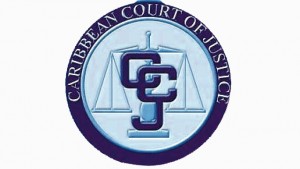 BRIDGETOWN, Barbados (CMC) — The Trinidad and Tobago-based Caribbean Court of Justice (CCJ) has ruled that the mandatory death penalty in Barbados is unconstitutional.
BRIDGETOWN, Barbados (CMC) — The Trinidad and Tobago-based Caribbean Court of Justice (CCJ) has ruled that the mandatory death penalty in Barbados is unconstitutional.
The CCJ, which is the highest court for Barbados, made the ruling based on two unrelated death penalty cases from Barbados.
The cases, Jabari Sensimania Nervais v The Queen and Dwayne Omar Severin v The Queen, were consolidated because both appeals challenged the murder convictions of each of the men and the constitutionality of the mandatory death sentence for murder in Barbados.
The court stated that a section of the Offences Against the Person Act was unconstitutional because it provided for a mandatory sentence of death.
In addition, both men had their appeals against their convictions dismissed.
Before examining the issues raised by the appeal, the regional court considered the state of the mandatory death penalty in Barbados for murder and found that it was indisputable that the nation, through its actions, had acknowledged that it had an obligation to remove such mandatory sentence under section 2 of the Offences against the Person Act.
The court also noted that Barbados had also given undertakings to the CCJ and the Inter-American Court of Human Rights to rectify the mandatory sentence which was reflected in the Barbados Privy Council’s consistent commutation of the mandatory death penalty.
The CCJ held that section 11 of the Constitution, which gives the right to protection of the law, was enforceable.
The CCJ also found that the mandatory death penalty breached that right as it deprived a court of the opportunity to exercise the quintessential judicial function of tailoring the punishment to fit the crime.
The CCJ ordered that the appellants be expeditiously brought before the Supreme Court for resentencing.
As it relates to the cases — Nervais was convicted of the murder of Jason Barton and the mandatory sentence of death by hanging was imposed on him.
It’s reported that Barton was selling from a booth when an alarm was raised that caused him, and the people gathered around, to run away. Gunshots were fired by a group of men and Barton was struck by a bullet and died.
Nervais was later arrested and charged with Barton’s murder after he made oral statements and a written confession to a police officer.
The Court of Appeal in Barbados dismissed his appeal against conviction and affirmed his sentence.
In the other case, Severin was convicted before a judge and jury for the murder of Virgil Barton in the parish of St Phillip.
The prosecution relied heavily on the evidence of Barton’s nephew, who testified that he saw two men shoot at the deceased.
During investigations, the police conducted a search of Severin’s residence and found a Taurus semi-automatic gun along with thirty-one 9mm rounds in his bedroom.
In his appeal to the CCJ, Severin challenged the reliability of Barton’s nephew’s evidence, the fairness of the informal identification parade and the instructions given by the judge to the jury at the trial.
The appeals were heard together on January 25 by the bench of the CCJ including CCJ President Sir Dennis Byron.
These are the last judgements that Byron will deliver as CCJ president as he will demit office on July 4.
